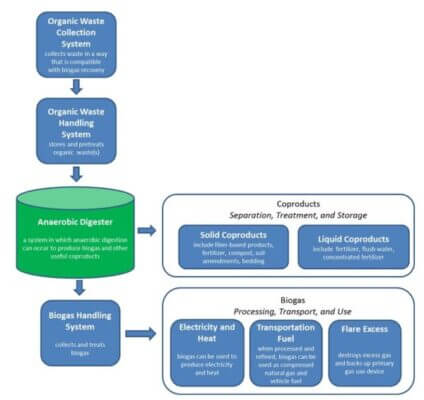Mastering Commercial Waste Management for Sustainable Growth
In today’s rapidly changing business environment, managing commercial waste has become a vital component of sustainable operations. Whether you run a small business or a large corporation, the way you handle waste significantly impacts not only the environment but also your company’s reputation and efficiency.
Transitioning Beyond Compliance
Effective waste management has evolved beyond a mere regulatory requirement. It now serves as a critical factor in shaping a business’s public image and achieving meaningful cost savings. Businesses that prioritize waste management can simultaneously enhance their sustainability efforts and improve their bottom line.
Modern Methods for Processing Waste
Anaerobic Digestion (AD) represents a frontier in waste management technology, especially for handling food waste. This section delves into the intricate workings of AD, a process that biologically breaks down organic material in the absence of oxygen, transforming waste into biogas and digestate. Moreover, AD is particularly significant for its dual benefit: it not only reduces the volume of waste but also creates renewable energy. Additionally, we explore different types of AD systems, with a focus on their application in the Northeast U.S., where they have gained substantial traction.

This document includes case studies demonstrating the successful implementation of AD technologies, highlighting their operational models and the benefits reaped. For businesses grappling with large volumes of organic waste, understanding AD technology is crucial in harnessing its potential for both waste reduction and energy production, marking a significant stride towards sustainability in commercial waste management.
Best Practices for Contracting Waste Services
Effective waste management begins with the right contractual agreements. This document provides businesses with comprehensive guidance on setting up and managing contracts for waste disposal services. It covers key considerations like service costs, pickup schedules, container sizes, and handling contamination, ensuring that businesses can negotiate contracts that align with their specific waste management needs.
We also tackle the need to grasp and follow local and state waste rules. Talking clearly with waste haulers is key — it makes waste services work better. This document is great for any business that wants to get their waste contracts right and cut costs.
Navigating Organic Waste Regulations
Complying with organic waste laws requires a blend of legal understanding and practical application. This guide explains key regulations, offers real-world examples, and provides strategies for businesses to turn compliance into opportunities for improved waste management.
Cross-State Collaborations
The “Crossing State Lines” section illustrates how neighboring states like Connecticut and Rhode Island maximize the impact of food waste laws by using composting sites across borders. This approach enhances regional collaboration and provides a scalable model for other states.
Community Engagement and the Business Case for Waste Reduction
Empowering Communities
Community involvement is pivotal for effective waste management. This guide explores how integrating food waste into local composting programs can drive collective progress. Practical steps for assessing site readiness and navigating regulatory requirements are included.
The Business Case for Waste Reduction
Reducing waste isn’t just environmentally responsible—it’s a sound business strategy. By tracking waste, improving food preparation, and managing portion sizes, businesses can save money and reduce their environmental impact. Success stories showcase how companies have benefited financially and operationally from adopting these practices.